Career and Technical Education (CTE) programs play a pivotal role in fostering lifelong learning and professional development. Designed to equip individuals with practical skills and industry-specific knowledge, CTE programs are essential for those looking to enhance their careers or pivot to new opportunities. This article delves into the top CTE programs available, offering a comprehensive guide to selecting the best options for personal and professional growth. By exploring the benefits, success stories, and future trends in CTE, readers will gain valuable insights and strategies to stay motivated and well-equipped for continuous learning and career advancement.
Discover more about this topic with gameshoek.com in detail.
1. Introduction to CTE Programs
Career and Technical Education (CTE) programs are specialized educational pathways designed to provide individuals with the skills and knowledge necessary to thrive in various industries. Unlike traditional academic routes, CTE programs focus on practical, hands-on training and real-world applications. They cover a wide range of fields, including healthcare, information technology, manufacturing, and more, making them highly relevant in today’s dynamic job market.
These programs cater to learners of all ages, from high school students to adults seeking career advancement or a change in profession. By emphasizing experiential learning, CTE programs enable participants to gain immediate, applicable skills that can be directly transferred to the workplace. This approach not only enhances employability but also supports lifelong learning by encouraging continuous skill development.
CTE programs are increasingly recognized for their role in addressing workforce needs and closing skills gaps. As industries evolve and new technologies emerge, the demand for skilled professionals grows. CTE programs are uniquely positioned to meet these demands, providing learners with the tools and expertise needed to excel in their chosen careers and adapt to future changes.
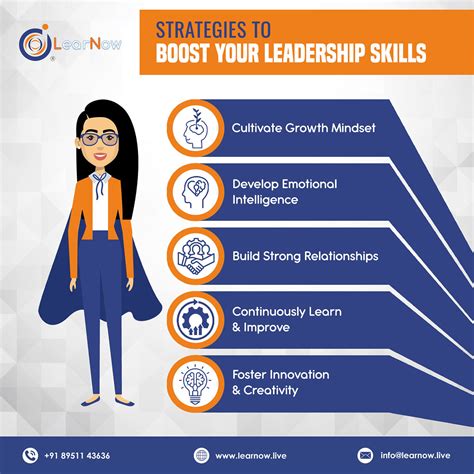
2. Benefits of CTE for Lifelong Learning
Career and Technical Education (CTE) programs offer numerous benefits that support lifelong learning and personal development. One of the most significant advantages is the acquisition of practical, hands-on skills that are directly applicable to various industries. This practical approach enhances employability and ensures that learners are well-prepared to meet the demands of the modern workforce.
CTE programs also promote continuous learning by encouraging individuals to stay updated with industry trends and technological advancements. This commitment to ongoing education helps professionals remain competitive and adaptable in a rapidly changing job market. Additionally, CTE programs often provide opportunities for networking with industry professionals, fostering valuable connections that can lead to career advancement.
Another key benefit of CTE is the ability to explore diverse career paths and gain specialized knowledge in specific fields. This targeted learning approach enables individuals to pursue their passions and achieve their career goals more effectively. Overall, CTE programs play a crucial role in fostering a culture of lifelong learning, equipping individuals with the skills and knowledge needed for sustained personal and professional growth.

3. Criteria for Selecting Top CTE Programs
Selecting the top Career and Technical Education (CTE) programs requires careful consideration of several key criteria to ensure they meet the needs of lifelong learners and career-oriented individuals.
First, the relevance of the curriculum is paramount. A high-quality CTE program should offer up-to-date courses that reflect current industry standards and practices. This ensures that learners acquire skills that are in demand in the job market.
Second, the program’s hands-on training component is crucial. Effective CTE programs provide practical, experiential learning opportunities that allow students to apply theoretical knowledge in real-world settings. This can include internships, apprenticeships, or lab work that enhance the learning experience and better prepare students for their careers.
Accreditation and certification are also important factors. Programs that are accredited by recognized industry bodies or offer certification upon completion provide an added layer of credibility and assurance that the education meets high standards.
Another vital criterion is the quality of instructors. Programs staffed by experienced, knowledgeable professionals who have direct industry experience can offer valuable insights and mentorship.
Additionally, the success rate of graduates is a key indicator of a program’s effectiveness. High job placement rates and positive testimonials from alumni can provide evidence of a program’s impact on career advancement.
Finally, consider the availability of support services such as career counseling, job placement assistance, and financial aid options. These services can significantly enhance the overall learning experience and help students achieve their professional goals.
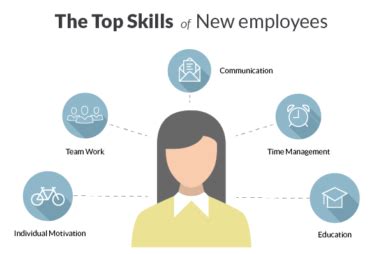
4. Overview of Top CTE Programs
When exploring top Career and Technical Education (CTE) programs, several stand out due to their comprehensive curricula, hands-on training, and strong industry connections. These programs not only equip learners with relevant skills but also ensure their readiness for the job market.
One exemplary program is the Health Science CTE pathway. This program covers various healthcare fields, including nursing, medical technology, and health administration. With extensive lab work and clinical rotations, students gain practical experience that is essential for their careers.
The Information Technology (IT) CTE program is another standout. It offers courses in cybersecurity, network administration, and software development. The curriculum is designed to keep pace with rapid technological advancements, and students benefit from internships and projects that provide real-world experience.
For those interested in engineering and manufacturing, the Advanced Manufacturing CTE program offers training in robotics, CAD design, and production technologies. This program emphasizes innovation and problem-solving, preparing students for high-demand careers in modern manufacturing.
The Culinary Arts CTE program is ideal for aspiring chefs and hospitality professionals. It combines classroom instruction with kitchen labs and internships in top restaurants, providing a comprehensive education in culinary techniques and management skills.
Lastly, the Business Management CTE program offers courses in entrepreneurship, finance, and marketing. Students engage in practical projects and internships that prepare them for leadership roles in various industries.
These top CTE programs exemplify the best practices in career and technical education, offering students robust training and excellent career prospects.

5. Detailed Analysis of Each Program
The Health Science CTE pathway provides an in-depth exploration of the healthcare industry. It covers diverse fields such as nursing, medical technology, and health administration. Students engage in extensive lab work and clinical rotations, gaining hands-on experience critical for success in healthcare careers. The program’s strong focus on practical skills ensures that graduates are well-prepared to enter the workforce and make immediate contributions.
The Information Technology (IT) CTE program is designed to keep pace with the fast-evolving tech industry. Offering courses in cybersecurity, network administration, and software development, it equips students with cutting-edge skills. Internships and real-world projects are integral to the curriculum, providing students with valuable experience and industry connections.
In the Advanced Manufacturing CTE program, students delve into robotics, CAD design, and production technologies. This program emphasizes innovation and problem-solving, preparing students for high-demand roles in modern manufacturing. Hands-on training with advanced machinery and software is a cornerstone of this pathway.
The Culinary Arts CTE program combines classroom instruction with kitchen labs and internships in top restaurants. Aspiring chefs and hospitality professionals receive comprehensive training in culinary techniques and management skills, ensuring they are ready for the dynamic food service industry.
The Business Management CTE program offers a thorough education in entrepreneurship, finance, and marketing. Students engage in practical projects and internships that develop their leadership and strategic thinking abilities, preparing them for successful careers in various business sectors.
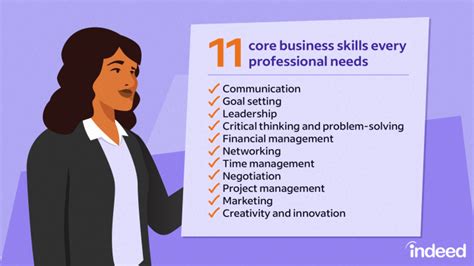
6. Success Stories and Testimonials
Success stories and testimonials from graduates of CTE programs highlight the transformative impact of these educational pathways. For instance, Sarah, a Health Science CTE graduate, transitioned seamlessly into a nursing career. She credits her clinical rotations and hands-on training for her preparedness and confidence in the healthcare field.
In the IT sector, James completed the Information Technology CTE program and quickly secured a job as a cybersecurity analyst. He emphasizes the importance of the real-world projects and internships that gave him a competitive edge in the job market.
Maria, a graduate of the Advanced Manufacturing CTE program, now works as a robotics engineer. She praises the program’s focus on innovation and practical skills, which equipped her to excel in a cutting-edge industry.
For those in the culinary arts, Jason’s success as a head chef in a renowned restaurant underscores the value of the Culinary Arts CTE program. His combination of kitchen lab experience and industry internships prepared him for the fast-paced culinary world.
Finally, Emily’s journey through the Business Management CTE program led her to launch her own successful marketing firm. She attributes her entrepreneurial success to the comprehensive education and practical projects that honed her leadersh

7. Tips for Maximizing CTE Learning Experience
To maximize your Career and Technical Education (CTE) learning experience, consider the following tips:
Engage Actively: Take full advantage of hands-on training and practical projects. Immersing yourself in real-world applications enhances your skills and understanding. Actively participate in lab work, internships, and simulations to gain valuable experience.
Network with Professionals: Build connections with instructors, industry professionals, and fellow students. Networking can provide insights into industry trends, open doors to job opportunities, and offer mentorship that supports your career growth.
Seek Feedback: Regularly seek feedback from your instructors and peers. Constructive criticism helps you identify areas for improvement and refine your skills, ensuring you meet industry standards.
Stay Updated: Keep abreast of the latest developments in your field. CTE programs often cover current industry practices, but continuous learning beyond the program will keep you competitive and informed about emerging technologies and trends.
Utilize Resources: Make use of additional resources provided by the program, such as career counseling, job placement services, and academic support. These resources can help you navigate your career path and enhance your learning experience.
Set Goals: Establish clear, achievable goals for what you want to accomplish during the program. Having specific objectives will keep you motivated and focused on your personal and professional development.
By following these tips, you can make the most of your CTE program, gaining the skills and knowledge necessary for a successful career.
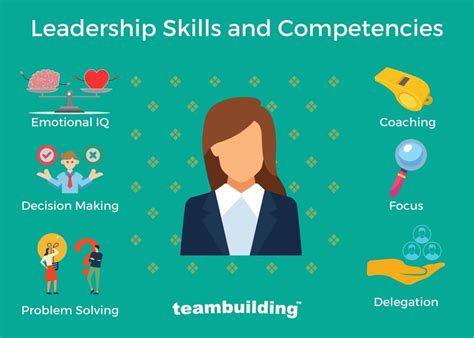
8. Funding and Scholarship Opportunities for CTE
Funding and scholarship opportunities are crucial for making Career and Technical Education (CTE) programs accessible and affordable. Many CTE programs offer scholarships and financial aid to help cover tuition, materials, and other related expenses.
One option is federal and state grants, such as the Pell Grant, which provides financial assistance based on financial need. Additionally, some states offer specific grants and scholarships for students pursuing CTE programs, so it’s beneficial to explore local opportunities.
Many professional organizations and industry associations offer scholarships to support students in their fields. For instance, organizations related to healthcare, IT, and manufacturing often provide financial awards to encourage education and skill development in these sectors.
Community colleges and technical schools also frequently have their own scholarship programs for CTE students. Contacting the financial aid office of the institution can provide information on available funding options and application procedures.
Lastly, some employers offer tuition reimbursement or financial support for employees seeking further education through CTE programs. Checking with your current or potential employer about such benefits can be a valuable way to fund your education while advancing your career.

9. Future Trends in CTE and Lifelong Learning
Future trends in Career and Technical Education (CTE) and lifelong learning are set to evolve significantly with technological advancements and shifting workforce needs. One key trend is the integration of digital tools and online platforms into CTE programs, enhancing accessibility and flexibility for learners. Virtual simulations, online coursework, and digital certifications are becoming increasingly prevalent, allowing for more interactive and remote learning experiences.
Another trend is the emphasis on interdisciplinary skills, combining technical training with soft skills like problem-solving, communication, and teamwork. This approach prepares students to adapt to diverse and dynamic work environments.
Additionally, there is a growing focus on personalized learning experiences, using data and analytics to tailor education to individual needs and career goals. Lifelong learning will increasingly involve continuous upskilling and reskilling, driven by rapid technological changes and evolving industry standards.
As industries advance, CTE programs will continue to adapt, ensuring that learners are equipped with the latest skills and knowledge to thrive
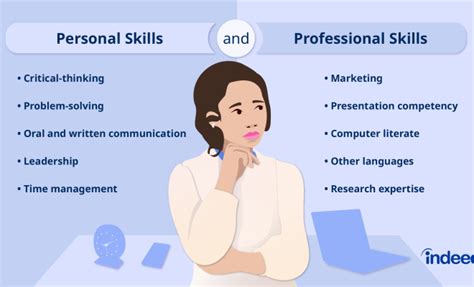
Career and Technical Education (CTE) programs are vital for enhancing skills and advancing careers through practical, hands-on learning. By understanding the benefits, evaluating top programs, and exploring funding opportunities, learners can make informed decisions to support their lifelong education journey. As CTE continues to evolve with technological advancements and changing industry demands, staying engaged and proactive will be key to maximizing the benefits of these programs. Embrace these opportunities to drive
gameshoek.com
